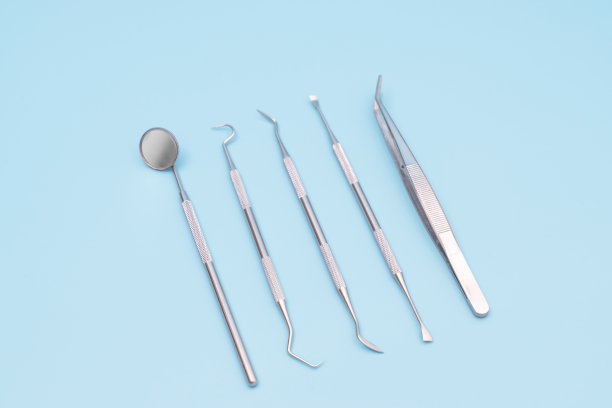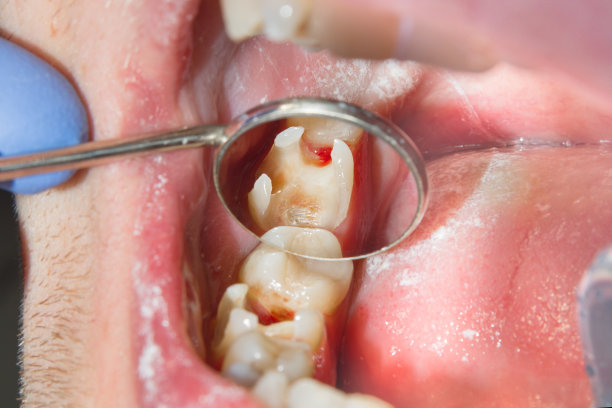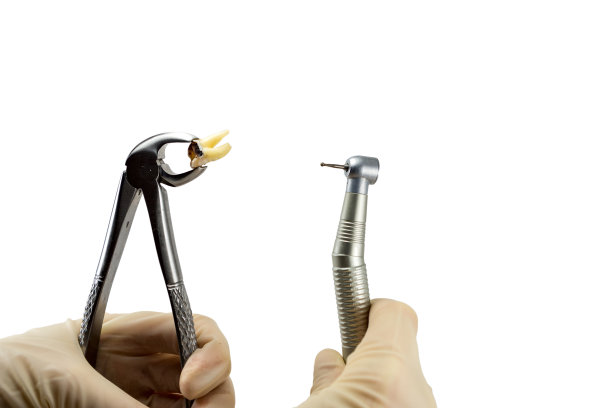Summary: Periodontal disease, a common inflammatory condition affecting the supporting structures of the teeth, can have far-reaching effects on overall health, extending beyond oral health. This article will explore the multifaceted impact of periodontal disease on systemic health, including its connections with cardiovascular disease, diabetes, respiratory infections, and its implications for preventive dental care. Through understanding these relationships, we can stress the importance of maintaining good oral hygiene and receiving regular dental check-ups as essential components of overall health. A proactive approach to dental care not only prevents periodontal disease but also contributes to better health outcomes in general.
1. Link Between Periodontal Disease and Heart Health

Research has demonstrated a clear connection between periodontal disease and cardiovascular health. Inflammation caused by periodontal disease can exacerbate systemic inflammation, which is a contributing factor in the development of heart disease. Bacteria from infected gums can enter the bloodstream and attach to arterial walls, contributing to the formation of plaques that narrow arteries and increase the risk of heart attacks.
Moreover, individuals with periodontal disease are more likely to experience heightened blood pressure, which indirectly affects heart health. Studies have indicated that maintaining good oral hygiene can potentially reduce the risk of heart-related conditions, underscoring the need for regular dental check-ups as part of preventive healthcare.
Consequently, addressing periodontal disease can yield significant benefits for cardiovascular health. Regular cleanings and periodontal treatments not only help to restore oral health but might also be a vital strategy for individuals at risk of cardiovascular issues.
2. Periodontal Disease and Diabetes Complications
The interplay between periodontal disease and diabetes represents a bidirectional relationship. Diabetic patients are more susceptible to infections, including periodontal disease, due to compromised immune responses. In turn, periodontal disease can hinder glycemic control, complicating diabetes management and increasing the risk for diabetic complications such as neuropathy, nephropathy, and retinopathy.
Moreover, studies suggest that treating periodontal disease can improve blood sugar levels in diabetic patients. Enhanced oral health leads to reduced inflammation and bacterial load, which significantly supports better overall health outcomes. Hence, diabetics should prioritize maintaining optimal oral hygiene to mitigate the risks associated with periodontal disease.
Recognizing these connections highlights the necessity of an integrated approach between dental professionals and healthcare providers. Regular dental visits should be part of a comprehensive care plan for diabetic patients to ensure both their oral and overall health are managed effectively.
3. Respiratory Health and Oral Disease Connections
There is considerable evidence suggesting that periodontal disease may have adverse effects on respiratory health. The bacteria present in the oral cavity can be aspirated into the lungs, leading to pneumonia and other respiratory infections, particularly in vulnerable populations such as the elderly and those with preexisting conditions.
Additionally, studies have shown that individuals with poor oral hygiene are more likely to suffer from chronic obstructive pulmonary disease (COPD). The inflammatory responses triggered by periodontal disease can exacerbate symptoms and lead to a decline in lung function over time.
Preventive dental care becomes critical in reducing these risks. Maintaining oral health through regular visits and proper at-home care can serve as a frontline defense against both systemic diseases and respiratory conditions. This preventative aspect can significantly improve and support overall well-being.
4. Preventive Care: A Holistic Approach to Health
Given the substantial impacts of periodontal disease on overall health, preventive dental care is crucial. Regular dental check-ups are essential for early detection and treatment of periodontal issues before they escalate. Dentists can provide valuable guidance on proper oral hygiene practices, nutrition, and lifestyle choices that contribute to healthy gums and teeth.
Moreover, education about the relationship between oral health and systemic diseases can empower individuals to prioritize their oral care. This holistic approach should include screenings for systemic diseases during dental visits, establishing a more integrated healthcare model.
Investing time and resources in preventive dental care not only mitigates the risk of periodontal disease but also fosters a culture of health consciousness that can lead to enhanced quality of life and reduced healthcare costs over time.
Summary:
The relationship between periodontal disease and overall health is profound, connecting oral health with systemic conditions such as heart disease, diabetes, and respiratory issues. Understanding these links emphasizes the critical role of preventive dental care in mitigating health risks and promoting better health outcomes overall.
By prioritizing oral hygiene and keeping regular dental appointments, individuals can enhance their health prospects significantly, benefiting both their oral and systemic well-being.
This article is compiled by Vickong Dental and the content is for reference only.
Vickong Dental
Vickong Dental is a large medical group established in Hong Kong in 2008 by professors from well-known medical universities in Guangdong and Hong Kong, as well as medical doctors from key national '985' universities (including Master's supervisors and senior professors). The chain of branches brings together expert dentists with PhDs and Master's degrees from Hong Kong and Mainland China, committed to providing high-quality dental treatment.
"Vickong Dental Practices the University Motto of 'Healing and Serving Society,' with a Stable Operation for Sixteen Years. It Has Been honored with Hong Kong Enterprise Leaders's Choice,' and is a Global Trusted Implant Center for the Nobel Implant System. Recommended by Hong Kong Metro Broadcast and Guangdong Television, it Serves Customers from Over Thirty Countries and Regions, Gaining the Trust and Favor of Citizens from the Guangdong-Hong Kong-Macau Greater Bay Area and Surrounding Cities.

Thousands of customers' unanimous praise
The most recognized and highly recommended dental service by customers in the Guangdong-Hong Kong-Macau Greater Bay Area
We Ensure You Receive Detailed Care and Attention Here
Hong Kong standards, Shenzhen prices, Your Trusted English-speaking dentists

Vickong Dental Medical-Grade Instrument Disinfection Process
Vickong Dental Medical-Grade Instrument Disinfection Process

Vickong Dental Chain: A Warm and Comfortable Environment for Treatment






Appointment Hours

Q&A
Why choose Vickong Dental?
Vickong Dental practices the university motto 「Medicine to Benefit Society」, with each branch bringing together highly qualified dentists with doctoral and master’s degrees from Hong Kong and the Mainland, and has maintained seventeen years of steady operation。Recipient of 「2024 Hong Kong Enterprise Leaders Brand」, 「2025 Hong Kong Enterprise Leaders Brand」, a Nobel Biocare Global Trusted Implant Center, and a brand recommended by Metro Radio Hong Kong and Guangdong TV。
To date, we have served customers from more than thirty countries and regions,earning exceptionally high word-of-mouth recognition and trusted recommendations from residents across the Guangdong-Hong Kong-Macao Greater Bay Area and surrounding cities
We have eight major branches in Zhuhai、Shenzhen,and a consultation and service assurance center in Hong Kong,so you can book a free consultation at any time for any questions,which is very reassuring.
If I do not accept the quotation after the CT scan, will I be charged??
No! As long as the actual treatment has not started, you will not be charged any fees.
Will there be any additional charges during the treatment process?
No, there won’t be any additional charges. Before treatment begins, we will clearly explain the treatment plan and its corresponding fees. Only after the patient agrees and signs the consent form will we proceed with the dental service.
Can I pay in Hong Kong dollars?
Yes. Vickong Dental accepts payment in Hong Kong dollars. The amount will be converted based on the exchange rate of the day, and the applicable rate will be clearly communicated to you in advance.
Can I reschedule my appointment at any time?
Yes. Please contact us via **WeChat** or **WhatsApp** as early as possible, providing your original appointment time and details, along with your preferred new date and time slot for rescheduling.













